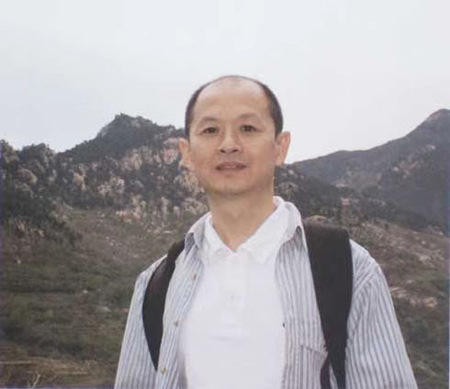"Happy Trap" -As as long as happiness, can you be happy?
Author:Science popularization China Time:2022.09.20
Half a year ago, "Good Luck" came to me: I experienced promotion and salary increase, got a good job title, and had a long -awaited independent office.

Dreams come into reality, you must think I will be very happy?
I am very regrettable to tell you that this is not the case: when I calculate the number added to the salary card, happiness has just passed, and I sit in the second week of the independent office, and the excitement and freshness disappear, and I don't even have any even no even Pay special attention to my new position updated on the magazine copyright page. I thought these dreams of dreaming would bring me strong happiness and happiness. And this is not the case. The moment happiness is realized at the moment of dreams.
Have you ever had an experience similar to me? Finally, "jumping" to the long -term company, the joy does not seem to last for a long time; after finally going to the long -awaited online celebrity attractions to complete a series of actions such as the "sun" circle of friends, it seems not so happy. You don't even want to go to the second brush.
Why is pleasure that is easy to pass?
Evolution psychologist Robert Wright believes that this is a "design" of natural selection. Human beings do something under the "design" of naturally selection to pass genes to the next generation. In order to achieve the purpose of "passing genes to the next generation", the mechanism of "pleasure is easy to subscribed". Happiness and death, let us bring dissatisfaction after achieving our goals, which drives us to pursue more pleasure. Natural choices do not want us to be happy, but want us to "produce more production". From its perspective, multi -yields are very narrow. The way to make us more produce is to make our expectations of pleasure very strong, but the duration is not long.
Scientists have studied this logic from the secretion of dopamine (a nerve to a material related to the expectation of pleasure and pleasure expected by the biochemical level). In a pioneering study, they used monkeys as experiments, dripping sweet fruit juice on the monkey's tongue, and monitoring monkeys to produce neurons in dopamine. Just as expected, after the juice dripped on the tongue, dopamine was secreted immediately. Subsequently, the monkey was trained and learned that the juice could be drunk after learning the light. With the advancement of experiments, the lights are lit more and more dopamine secreted by monkeys, and "fruit juice really stained tongue" makes them more and less dopamine secreted.

We are not sure of the monkey's feelings, but it seems that over time, the pleasure brought by the expectations of sweetness is getting stronger and stronger, and the pleasure that truly experiences from sweetness is less and less.
From this experiment, we can get such a speculation. If you experience a new pleasure, for example, if you go to a net red attraction, you will secrete a large number of dopamine. But next, you have been to this attraction, and next time you go, the peak of the secretion of dopamine will appear before you go next time, and the amount of dopamine secreted by this attraction for the second time is far less than that The secretion when you first went.
Happiness is essentially short, and positive emotions will not last for a long time. Therefore, people always look for new ways to make people feel good. However, what makes us happy (such as salary increase, vacation, buying new cars, celebrations) will only bring us temporary happiness. To make matters worse, human beings are not good at predicting what will make themselves happy. This concept is called emotional prediction. We think that buying lottery prizes will make us happy, but in fact, regardless of the previous happiness, most people who buy lottery tickets often return to the previous state. Just like the mirage on the horizon, we are constantly pursuing happiness, but we can never get it.

In 1971, Philip Brickman and Donald T. Campbell proposed the theory of "The Hedonic Treadmill", also known as "Hedonicadaptation" (Hedonical). theory. This theory refers to a trend at the initial level of happiness, despite its undulating life. For example, your dream is to have a big house, work hard, make a lot of money, and then move to your "dream mansion". Reaching this dream will give you a period of satisfaction, but sooner or later you will start to want a larger house. In fact, you have been trapped in a vicious circle of desire.
This cycle is shown in the figure. The cycle from top to bottom is: desire -effort -gain -enjoying -adaptation -more desire. According to the theory of "Lelto Treadmill", what you expect is always higher than you have. Human desires are more and better. Therefore, no matter what you have, you will be destined to return to the original level of happiness. Happiness and death will be dissatisfied with us.

You may have realized that this is a treadmill that specially designed to let you run, and you usually can't reach any end point. However, you still run.
Is there a way to "escape the treadmill"?
In fact, a large number of studies have found that in fact, we can actually feel happy without any external stimuli. In the past 30 years, Mindfulness training based on Eastern meditation has gradually developed in the West. The founder of positive psychology Seligman regards mindfulness as one of the three major elements to enhance physical and mental pleasure. Raising mindset training to improve happiness has become a subject that researchers are increasingly concerned. For example, Davidson and other studies have found that through the training of mindfulness, the frontal quadae wave activity of the left side of the individual brain has been significantly enhanced, and this brain area is related to positive emotions, which may be one of the brain nerve mechanisms that enhance positive emotions. Studies of Holzel and other studies found that the test passed the eight -week righteous thoughts, and its right -based almond -on -side gray gray density decreased, and the perception pressure was reduced. This may be a way for righteous thoughts to alleviate negative emotions.
Barbara Fredrickson's research, we can use mindfulness meditation to escape the "hedonic treadmill". Regular meditation exercises can improve your concentration, satisfaction of life, and happiness. You just need to sit down simply and take a few minutes in the present. Listen to the breeze through the auricle, feel the temperature of the air on the skin, feel the weight of our body on the earth, and take a few deep breaths. These simple things are enough to make us happy.

Life happiness lies in the conversion of mentality, and mindfulness meditation is a very effective tool.
Now, do you look forward to restoring the "freedom" and you can go to the playground to play with the day, go to the mall to "fight", and then go to the public reviews that have been collected for a long time to eat and drink? In fact, these expectations may just bring you the fleeting happiness. And happiness is actually at this moment. If you really achieve the success of meditation, you may have this new state of mind. Compared with the past, it is not so successful and no longer pursue the distant material goals, but pays more attention to the present.
references:
Edward Berkeley, Melissa Berkeley, "Motor Psychology", People's Post and Telecommunications Press
Robert Wright, "Insight: From Science to Philosophy, Open Human Cognitive Truth", Beijing United Press
Emel Bayramoglu: What is "hedonic treadmill"? How did it pull us down our desire abyss? ,,
https://www.thepaper.cn/newsdetail_forward_12562092
Davidson RJ, Kabat-Zinn J, Schumacher J, et al. Alterations in Brain and Immune Function Produced by Mindfulness Meditation [J]. Psychosomat Med, 2003, 65 (4): 564-1570.
Holzel BK, Carmody J, Evans KC, Et Al. Stress Reduction Correlats with Structural CHANGES in The AmyGdala [J]. Soc Cognit Affect Neurosci, 2010, 5 (1): 11-17.
The article is produced by the popular science China-Starry Cultivation Plan. Please indicate the source for reprinting
Edited by the popularization of popular science China

Content comes from: Chinese Psychological Society Psychology Popularization Working Committee
- END -
Simply Wuhua True temperament -painter Li Shu's character sketch

【Art Resume】Li Shucheng, male, born in 1962, Wenchang, Hainan, graduated from Gu...
Pay attention to today's calligraphy and painting market to realize the desire to value value -added -recommendation of contemporary calligraphy and painting masters

Author: Mo XiaoIntroduction: Recalling the real estate market in China, most of th...